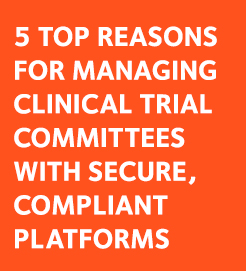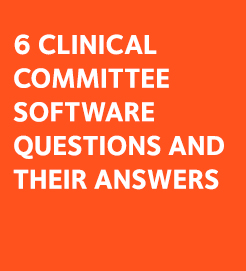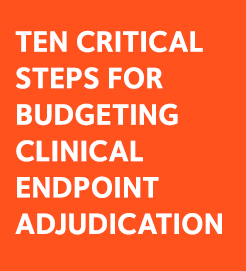Why is “inspection readiness” important? What should a sponsor look for when auditing a Clinical Adjudication process? When should the audit be performed? We’ve asked Ethical’s Head of Quality Assurance, Dr Beat Widler, to share tips on how to best prepare for Clinical Adjudication GCP inspection. The following checklist, he says, will ensure adequate QA oversight of the Clinical Adjudication process.
Inspection readiness and the internal audits of a Clinical Adjudication process
Health authorities take substantial time to carefully review all the data provided by the sponsor before granting a marketing authorization for a new drug, device or a new indication. Health authorities have the obligation to scrutinize the results of clinical trials and also to verify the quality of that data to confirm that it has been properly collected and analyzed. This verification is done by means of thorough inspections conducted by qualified inspectors on all aspects of the research, development and manufacturing of the candidate new drug prior to approval.
In the clinical research area, all the components of the clinical trials are subject to verification and sponsors prepare for inspections by conducting internal audits during the course of the trials to assess, and if needed correct, the different facets of the trials conduct, including the Clinical Adjudication process if one was used. Good auditing practices will guarantee a successful inspection and a timely approval of the drug.
When should an audit of the Clinical Adjudication process be conducted?
Typically, a routine audit of the Clinical Adjudication process and systems is performed when about 20 – 30% of the foreseen assessments have been performed. This allows to verify a sufficient amount of data (e.g., minutes, assessments and decisions) and should the audit identify deficiencies the sponsor still has time to implement successful Corrective and Preventing Actions (CAPAs). A re-audit may be warranted to verify adequacy of CAPAs and will demonstrate a through oversight by the sponsor in case of an inspection by regulatory authorities.What are the main verification points of a Clinical Adjudication audit?
- Competency of Clinical Adjudication Committee (CAC) members, e.g. qualification, training on the trial protocol, training on the online platform if one is used.
- Independence of CAC members, e.g., review of Financial Disclosure Forms.
- Changes in composition of the CAC and if changes have occurred review on how transition has been managed and documented.
- Qualification of “raters” e.g. in case of image assessments.
- Availability and adequacy of the adjudication charter. It is for example specifically verified whether the rate of reviews is in line with the protocol and the anticipated recruitment rate and if the frequency of AC meetings is aligned with the expected volume of incoming data over a given time period.
- Review of agenda and minutes of the CAC meetings to confirm adherence to the terms and conditions of the Charter.
- Documentation supporting adjudication. This includes, for example, documentation of who has performed the adjudication and in case of conflict resolution who has voted. If a sponsor representative is present in any of the meetings there must be documentation that this individual acted as per provisions of the Charter.
- Feedback shared with the sponsor must be in line with the Charter and sponsor must follow through on decisions of the CAC.
- Verification that data protection laws / requirements have been adhered to. Specifically, if images, ECG tracings, etc. are shared with the CAC members - either sent to the members or uploaded onto a system for review by the CAC members - identifications linking the image, tracing, etc. to a trial participant, should not result in or lead to the (re-)personalization of the record.
- Safeguards to preserve the blind when adjudication assessments are unblinded. Evidence that such safeguards were effective i.e., blinding of blinded trial stakeholders such as sponsor, CROs, investigators, etc. was preserved and process applied is properly documented.
- Methodology and documentation of validation of computerized systems if the operations of the CAC are supported by a project management application like eAdjudication® including review of the life-cycle of computerized systems and related re-validation of systems.
External regulations, internal audits and health authorities inspections constitute a complete cycle of quality assurance that guarantees sound scientific and ethical conduct of drug development and manufacturing, preserving the safety of clinical trial participants and ensuring a positive risk-benefit balance for patients. ETHICAL is committed to participating in this cycle by strictly following regulations and by readily providing all the necessary tools and information for a successful Clinical Adjudication and Clinical Adjudication process inspection.
DOWNLOAD NOW THE FREE ENDPOINT ADJUDICATION HANDBOOK
The Complete Manual / Reference Book (34 pages) with all the topics related to the Independent Endpoint Adjudication Committees Management







